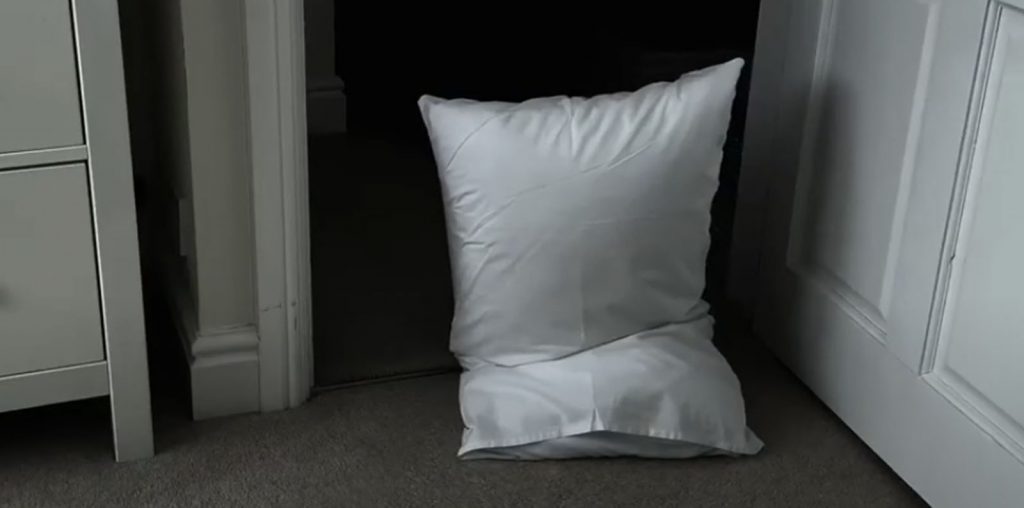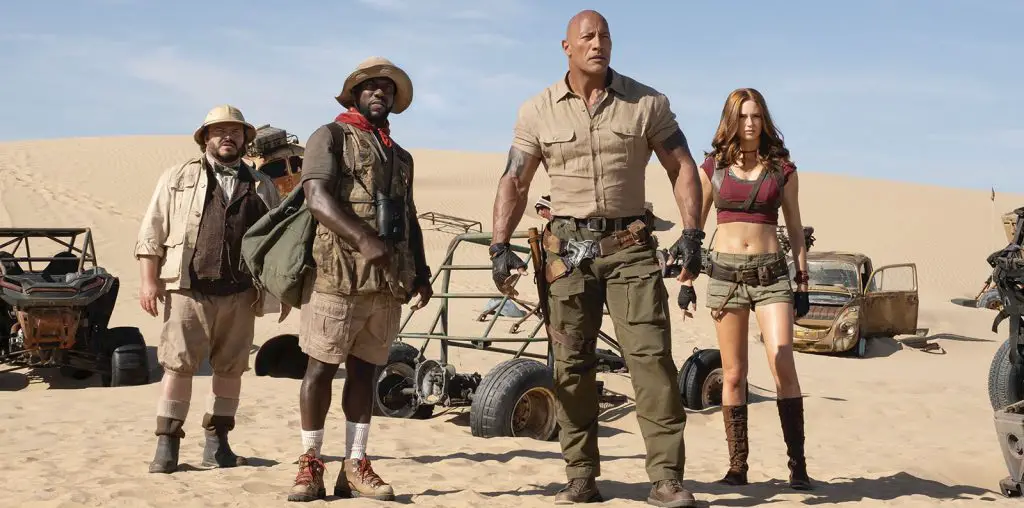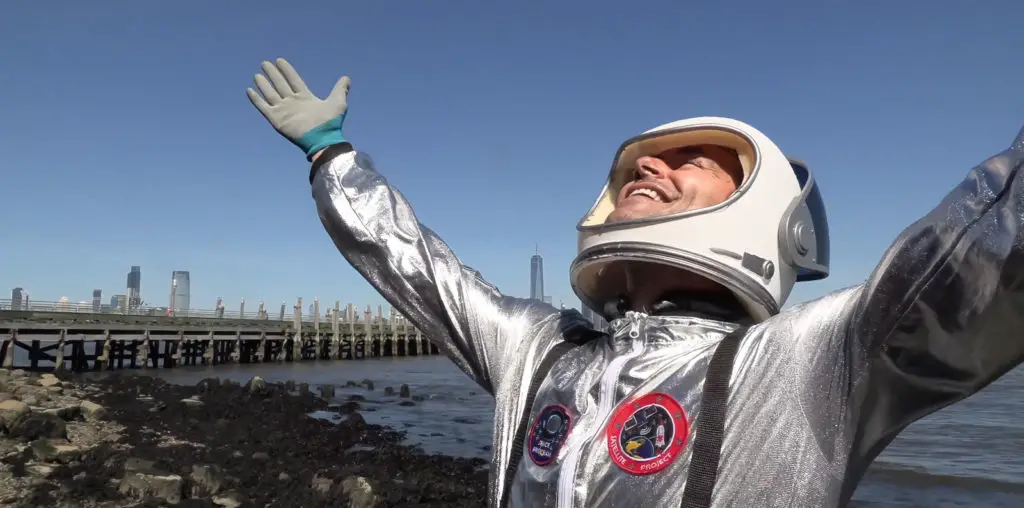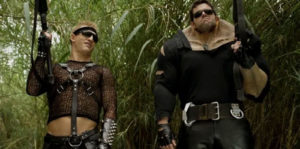
One of the joys of watching independent films is that they often explore material that takes the major studios years to discover. For example, in “The Prince of Profit,” Roger Corman produced and directed The Trip and The Wild Angels, which hit screens years before the studios discovered there was a counterculture and that its members were willing to buy tickets. The former film is a look at drug use that paints a nuanced depiction of chemical recreation instead of a blanket condemnation of the practice. The latter followed bikers before Easy Rider made everybody want to get their motors running. Oh, and Corman discovered that Peter Fonda was more than Hank Fonda’s son.
Corman is credited as the executive producer on the sadly delayed comedy Virtually Heroes (also known as Virtual Warriors), directed by G.J. Echternkamp and written by Matt Yamashita. His sense of what audiences want is still ahead of the rest of Hollywood. Admittedly that prescience isn’t quite apparent in the opening frames of this comedy that premiered at the Sundance Film Festival in 2013. After that, it just sat on a shelf for nine years. Why was this action comedy delayed for so long?
Something seems off about how Books (Robert Baker) and Nova (Brent Chase) fight in the Vietnam War. The Americans are facing an opponent that practically runs into machine gun fire, and some of the weapons and tactics they use don’t seem like the way U.S. forces would have countered the Tet Offensive. Nova giddily uses a gold-plated pistol that can inflict the damage of a Hellfire missile with each bullet. He seems scarily happy for a guy in the combat zone. At the same time, Books is perpetually glum because he keeps rescuing a reporter (Katie Savoy) wearing revealing outfits only to have her monologue before kissing her liberator.
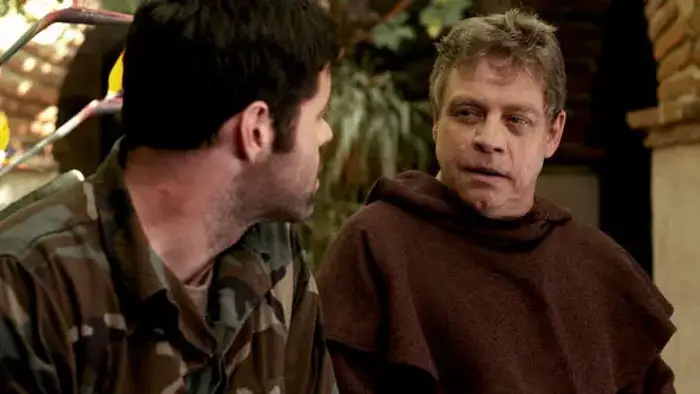
“Nova giddily uses a gold-plated pistol that can inflict the damage of a Hellfire missile with each bullet.”
While there are nods to Apocalypse Now, which was directed by Corman veteran Francis Ford Coppola, Virtually Heroes is more of a satire of games like Call of Duty. Years before Jumanji: Welcome to the Jungle and Free Guy, Echternkamp and Yamashita (the team behind Corman’s Death Race 2050) found plenty of clever ways to poke fun at the conventions of video games. When the two main combatants have a falling out, Books discovers that a Non-Playable Character (nicely played by Theo Breaux) makes for an amusingly poor comrade in arms. Before you can yell, “Leeroy Jenkins!” he passively gets both into trouble.
Eventually, Books and Nova discover they’re in a game, but we, the audience, never learn if the two are avatars for players sitting at home in the present day or are simply at the whim of the game’s universe. Yamashita delights in poking fun at how limited the romantic opportunities are on a PlayStation and how all the women have the same sort of physique and clearly make up less than 10 percent of the game’s population. I suppose I’d be as morose as Books if I were in that environment.
Mark Hamill shows up as a monk who teaches Books how to get through levels without meeting a premature end. Hamilll clearly enjoys getting to be Yoda for a change and demonstrates comedy chops he’s rarely had to use before. One wishes Virtually Heroes gave more time to the mentor teaching his grim pupil. Learning cheat codes is not nearly as fun in actual gaming.
It would have been helpful if Virtually Heroes better defined its game universe. Baker and Chase are fun, but it would’ve been even funnier to examine what sort of person is playing the game. Much of the fun of Jumanji: Welcome to the Jungle is watching how the players and their avatars differ or start blurring boundaries. Nonetheless, it is comforting that Corman is still seeing ahead of the rest of the industry, even in his 90s.
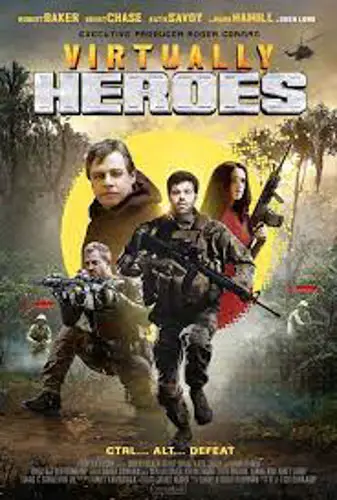
"…found plenty of clever ways to poke fun at the conventions of video games."
